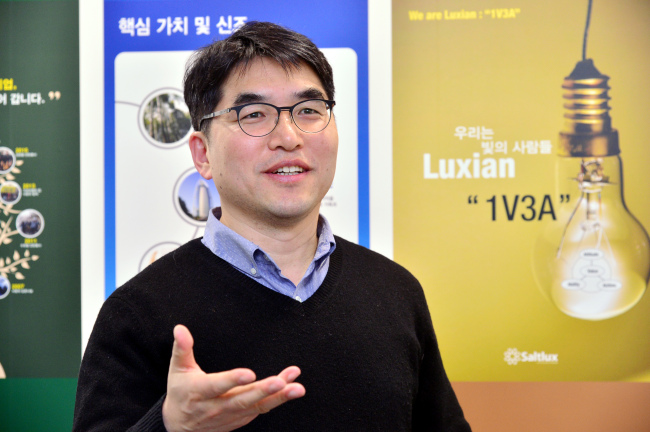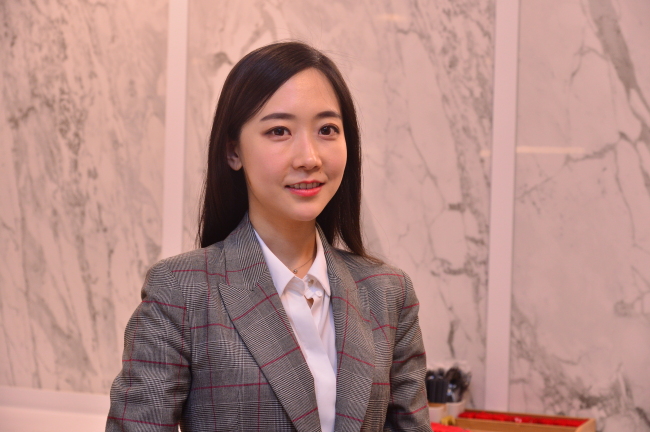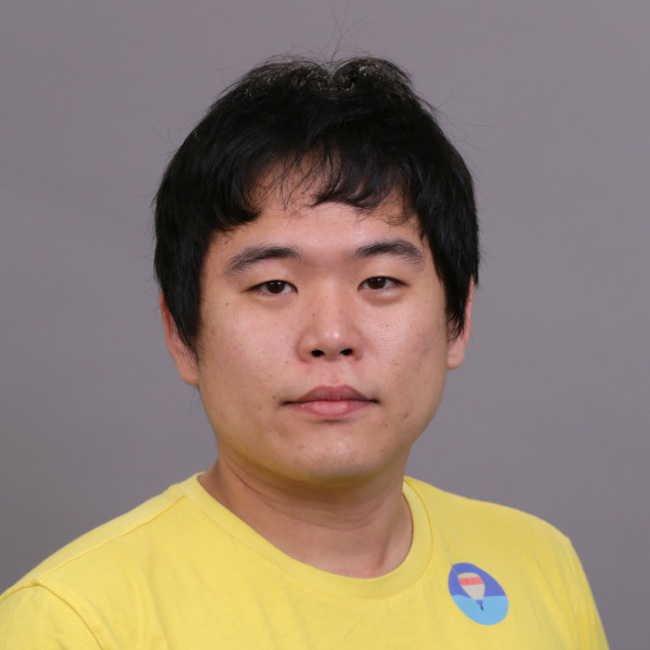In 2017, less than a year after a historic match between the Korean Go master Lee Se-dol and Google’s AlphaGo, human translators and machine translators were pitted against each other in a separate contest in South Korea. While the showdown ended in a victory for humans against translation engines developed by Google, Naver and Systran, many of the ensuing headlines highlighted the possibility that artificial intelligence might disrupt the translation industry.
Translation often appears on lists of jobs at risk of being lost to automation, inspiring a fear of AI intrusion into an area that has long been regarded as uniquely human: language.
What does the dawning of the AI age entail for translators? Korea’s leading experts in both fields -- traditional translation and technology-based translation -- sat down with The Korea Herald to share their insights on the issue.
AI translation still a taboo
Mobico is a leading machine translation and technical communication service company in Korea that offers customized machine translation solutions for enterprises. Simply put, if Google Translate is a generalist, a Mobico product is a specialist -- optimized for its customers’ respective fields, and free from security risks as it is privately set up.
The advent of neural machine translation in 2016 opened up a new epoch for machine translation technology companies such as Mobico. Mobico CEO Shin Seok-hwan said he never could have foreseen such a high level of quality for automated translations with previous models, the statistical or rule-based engines.
 |
Machine translation developer Mobico CEO Shin Seok-hwan (Park Hyun-koo, The Korea Herald) |
The Korean translation solutions company struck its first NMT deal this month with a local “electronics giant” whose translation engine boasts “higher accuracy than Google’s,” Shin said. He added he couldn’t disclose Mobico’s “high-profile” clients as they typically request confidentiality. Asked to elaborate, he said there is “a widespread distrust of machine learning and AI technology,” and that clients shrink away from their usage of machine translation becoming public knowledge. But Shin did reveal that Mobico had been chosen as the sole supplier of Korean-English and English-Korean machine translation to Samsung Electronics in 2009.
He compared the sentiment of resistance toward AI-based translation to the initial reception of every technological innovation. “Electronic calculators, when first introduced, worried many as they were seen as superseding abacus calculations -- jobs held by humans,” he explained. “But once they were conventionalized, what happened was not the replacement of the human workforce, but liberation from manual, repetitive procedures and enhanced productivity.”
One obvious advantage of machine translation is the speed and quantity it can produce at once -- making it possible to bring localization to previously uncharted realms due to the price and sheer volume of material to be translated. “Written on paper, the size of an operations manual for heavy equipment such as vessels, airplanes or military hardware can take up an entire truck,” Shin said. “Before, one had to speak the language or it would take almost a year before the material could be translated into Korean. With machines, 1,000 words can be translated almost instantly and at a much cheaper cost.”
Still, the prospects of completely eliminating human input in the translation process is “very highly unlikely,” according to the CEO.
“One of the troubles in training an AI is its struggles with exceptions,” he said. “Because it is database-driven, it works more accurately for situations occurring with higher frequency. A simple error, a faulty placement of a punctuation mark, for instance, often goes amiss and can result in omission of the entire erroneous phrase or sentence.”
Shin stressed that machine translations are tools to be used by humans -- partners at best -- but not rivals.
“Documents translated by machines need to be proofread by human translators, and the proofreading job takes up a significant portion of each project to varying degrees, as much as 50 percent in some cases where the highest level of exactitude is required,” he said.
The genre of the text also matters. For genres with “atypical elements” such as literature, it is “neither advisable nor appropriate” for machine translation to venture in, Shin said.
Different domains for humans, machines
Jung Ha-yun, a literary translator and writer published in the New York Times and the Harvard Review, among other publications, echoed Shin’s opinion that literary translation is a domain suited to humans, not machines.
Jung said the translation process comprises two steps: interpretation and execution. And because the interpretation of a text and the subsequent decision-making process are “uniquely human endeavors,” “translation cannot really be replaced by machine technology,” she said, adding, “unless the text involved is a very simple one that involves no interpretation -- which is almost never the case beyond the sentence level.”
 |
Literary translator Jung Ha-yun (Jung Ha-yun) |
Literary translation “requires highly skilled craftsmanship and creativity” to “serve not only the author’s intent and craft but also (the translator’s) own interpretation of the given work,” said Jung, who currently serves as a professor at Ewha University’s Graduate School of Translation and Interpretation, the country’s top research institute in the field.
Jung acknowledged the role of technology in achieving greater efficiency. “Computer-assisted and artificial intelligence technology aid translators in carrying out massive projects … especially when it comes to technical, formulaic, informative texts” and allow them to “focus more on what only humans can do” -- comprehend the work and make decisions accordingly.
In this rapidly innovating field, human translators are seeking to carve out marketable niches.
Niches for humans
The demand for human translation is high, particularly in less technical sectors where translation goes beyond the mere transfer of information and necessitates the delivery of less literal elements.
Translation agency BabelTop is a startup that targets the niche market for translation services that require “the human touch.”
As such, the company sees the greatest demand in areas such as marketing, public relations and investor relations, said its founder and CEO Cho Eun-byul.
 |
Translation startup BabelTop CEO Cho Eun-byul (Park Hyun-koo, The Korea Herald) |
This differs from machine translation companies’ typical client base, which leans mostly toward IT, electronics and chemicals.
But Cho’s vision for her company goes beyond playing agency between translators and their clients. The Ewha Graduate School of Translation and Interpretation alumna’s ultimate vision is “to improve and shape the future job ecosystem for translators” in light of the emergence of intelligent machines.
“Future translators, as I envision, would be freed from the mechanical aspects of translation -- the simple substitution of words or terms in another language, for example, which most find laborious,” she said. “Translators feel rewarded by the more sophisticated parts of their job, such as analyzing the context, styling the prose and so on. BabelTop translators would be able to do only the latter.” To achieve this, Cho and her tech team are building a cloud tool that tracks the translation process, oversees the work itinerary and builds a glossary of terminology in order to facilitate the work of translators.
BabelTop will also provide the platform for translators to grow into specialists in specific fields. “It is hard for translators to build a specialized portfolio in the translation industry today, as most are forced to work freelance and projects are assigned without regard for the translator’s interests or forte,” Cho said. “At BabelTop, we store a track record of all the projects carried out by a given translator, which is also better for clients as they will be matched with a translator with the desired expertise.”
For the translator-turned-entrepreneur, the role will have to adapt to survive the fourth industrial revolution. “Because translators have firsthand access to everything in the languages in which they specialize, they are at the foremost front of information. From which a lot of insight can be drawn.” Her business, she said, will be similar to “a LinkedIn for such translator-specialists.”
Common future
On a resonant note, Facebook’s AI research scientist and New York University computer science professor Cho Kyung-hyun told The Korea Herald in a phone interview that AI translation could help to democratize information access by reducing language barriers. “Close to half of data available on the internet are in English. Which creates a digital divide for the non-English speakers. This can be overcome by automated translation.”
How much further AI translation will develop is still shrouded in mystery, said the AI developer. “As someone who researches (machine translation) every day, I can tell you no one can really claim to predict the future of AI translation at this point.”
 |
AI researcher at Facebook Cho Kyung-hyun (Cho Kyung-hyun) |
According to Cho, AI is now learning to read context. The more context it’s fed, the more algorithms it will develop. But context reading must be perfected at the monolingual level before it can be applied to translation.
When asked if AI would eventually replace human translators, he said it would depend on the genre and level of difficulty of the text. He added, however, that although the market for professional translators would eventually narrow, someone would always have to proofread and take responsibility for the final product.
Speaking of AI anxiety, the Mobico CEO said while machines would start to gain a larger slice of the pie, this posed a threat only to “those who do the same job as a machine.”
“Don’t fear the technology. Utilize it to boost performance and add value to your work,” he said.
By Kim Arin (
arin@heraldcorp.com)









![[Herald Interview] 'Trump will use tariffs as first line of defense for American manufacturing'](http://res.heraldm.com/phpwas/restmb_idxmake.php?idx=644&simg=/content/image/2024/11/26/20241126050017_0.jpg)

![[Exclusive] Hyundai Mobis eyes closer ties with BYD](http://res.heraldm.com/phpwas/restmb_idxmake.php?idx=644&simg=/content/image/2024/11/25/20241125050044_0.jpg)